Philip Weld, Jr.
- 1977
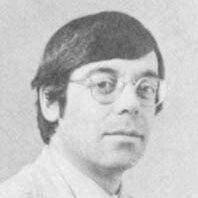
Fellowship Title:
- Role of Self Care in Health
Fellowship Year:
- 1977
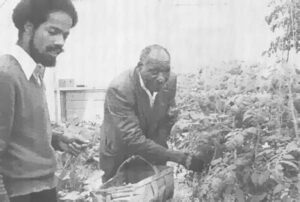
A Good Death, Wild Dogs and Hydroponic Gardening
John L. McKnight is a friend of Ivan Illich. He collaborated with him on Medical Nemesis, the book that describes the medical establishment as causing sickness. He pronounces Illich’s first name softly -“Eevahn.” John L. McKnight Uldis Saule Ion Photographics McKnight told how his Center for Urban Affairs at Northwestern had helped West Garfield Park, one of the toughest black ghettos in the country on Chicago’s west side, meet its health problems in an Illich-like manner. The area was in flames during rioting before and after the assassination of Martin Luther King, Jr. in 1968. “It’s okay to say that health is a problem and that crime is a problem, but it is a big mistake to think that more medical care and more police will improve matters,” said McKnight. “What you have is a collapsed community. Health and security are outcomes of things other than more police and more doctors. They are the result of a just community, not the result of resource inputs.” He said volunteers and staff of the Christian Action Ministry
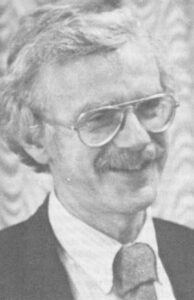
Notes of a Wellness Reporter
This country’s health problems are not going to be solved by throwing big money into cures with a pittance to prevention, by producing more doctors, hospitals and drugs. We’d do better to get people to change their health habits and the unhealthy environments in which they live. The Swedish and Chinese people have turned their countries into healthier places. Certainly the U.S. can too. Leon White, engineering PhD at Harvard School of Public Health warned me: “The major problem with changing lifestyles for a healthy people is that it is not clear that the public goal is to live as long and as healthy a life as we may think they want to.” White is directing a Cooperative Health Improvement Program in Boston suburbs by selling lifestyle changes. “We assume they want to live longer and be well more of the time. It is clear they don’t want to get hit by a car or get cancer, but ask them to cut out smoking in public places and they yell like hell for their freedom.
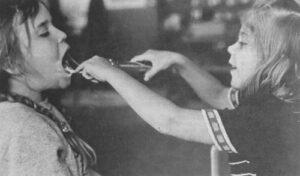
China and Packaged Classes Highlight Self-Care Meetings
Self-care conferences drew 300 health professionals to New York City and 20 to Sun Valley, Idaho, this Fall. I attended both and left convinced that lay care is universal and that lay people should get more training if they want it. The New York conference was sponsored by the Institute for the Study of Human Knowledge; New Human Services Institute, Graduate school, City University of New York; and the Office of Urban Health Affairs, New York University Medical Center. Talks ranged from describing Chinese “street” doctors in communes after two weeks training in how Americans can control compulsive eating in Overeaters Anonymous. In Sun Valley a month earlier 20 persons heard talks and swapped stories of getting self-care classes started and teaching them. The workshop was sponsored by Healthwise, Inc., of Boise, Idaho, a nonprofit organization which with a W. K. Kellogg grant has produced a textbook for self-care classes plus ten half-hour video tapes acted by professionals from a local TV station. This package limits itself to conservative, traditional medicine and includes a pamphlet
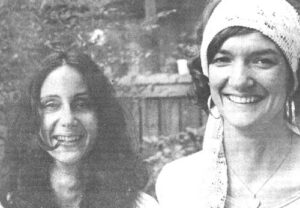
Wellness Medicine: Caring For Yourself
Imagine a phone pressed against your right ear. We’ll call it the outside phone because it blares messages, demands, oughts and shoulds from the outside. “You ought to get up,” it says. “You should wash the floor. Take the 9:05 train. Go running. Hurry up with your writing. You’re way behind.” Dare to hang up that right hand phone, blam, in mid-sentence, even if it is the phone you listen to all day and it turns you into an anxiety knot. Let quiet come. Don’t worry. Next time you pick it up it’ll be squawking as usual, a clever recording. You won’t miss a thing. Now for the inside phone quietly cradled to your left. It connects you with you. Deep inside yourself run its wires. You pick up the receiver and listen, hearing nothing at first, then maybe the sound of cool, flowing water. Breathing. It is like putting your ear to the mouth of a conch shell. Finally a small voice comes from your center, just below the navel, the place the Japanese
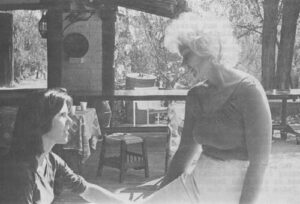
Blowing Bubbles Helps Rest Home Residents Deep Breathe
We had drunk a finger of wine and now my partner whirled me around the living room of Crosby’s Rest Home to the bouncy beat of Lawrence Welk’s champagne music coming from a tape recorder on the floor. My camera swung from my neck, but I kept up with her. My partner was Alma, in her 70s, a hyper black woman with an intricate dance step that was impossible to follow, yet whatever was going on it was clear that she and the other 17 residents at Crosby’s in Oakland, California were having a laugh. The wine and music was a highlight of the 1.5 hour program put on twice a week by volunteers from The SAGE (acronym for Senior Actualization and Growth Explorations) Project. SAGE, formed four years ago and now based in the Claremont Hotel, Berkeley, is designed to alter negative attitudes about aging and to demonstrate that people over 60 can grow. SAGE works in four Bay area institutions. At the start of the program I had been put ff by the
